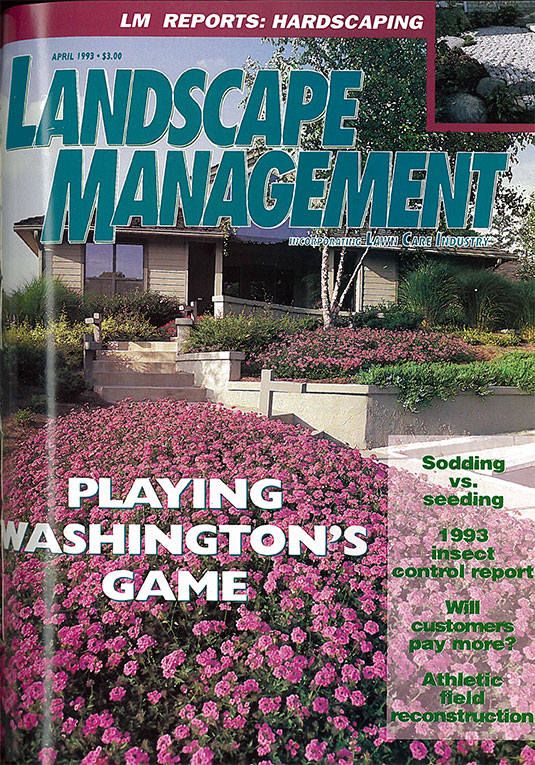
The government is working against lawns. In fact, it’s assaulting them, Gregg Robertson wrote in a recent government affairs column for Landscape Management.
Las Vegas has banned lawns in new developments and is offering cash to residents who tear out their lawns, he reports, and adds Los Angeles has dished out $1.4 million in rebates to homeowners who’ve replaced their lawns. Then there’s that some states have adopted laws regulating fertilizer applications.
A mere 20 years ago, though, the Green Industry’s issues were shoved to the bottom of the government’s to-do list, as shown by the cover story from the April 1993 issue of LM.
Titled “New faces in the U.S. Capital but industry challenges remain” by then-Senior Editor Ron Hall, the story exposes Congress had little worry or intent to pass legislation that would preempt local political bodies from enacting their own pesticide use laws.
“Lawn care is going to be a very small piece of the puzzle,” said James Aidala, staff member for the House Government Operations Committee. “ The more you (the Green Industry) can have worked out among yourselves, the better off you’ll be. Congress is not going to spend a lot of time on these issues…given all the other things going on.”
The Clinton administration’s top priorities at the time were health care and Clinton’s economic package, added Claudia McMurray, minority council, Senate Committee on Environmental Public Works.
Issues expected to take precedence over pesticide use, she said, included the Clean Water Act, the reauthorization of Superfund, amendments to the Safe Drinking Water Act and a stronger Endangered Species Act.
The federal preemption legislation was close to grabbing attention in 1992, but the 102nd Congress ended before the full House Agriculture Committee could act upon a bill, Hall reported.
And while 12 states passed preemptive legislation in 1992, Aidala said in 1993 the issue likely would “get swept up in larger politics, especially agricultural use of products.”
The most threatening action that year was coming from Senator Joseph Lieberman who proposed an amendment to The Emergency Planning and Community Rights-To-Know Act, which would set stiff fines and jail terms for lawn care professionals who willingly don’t notify homeowners what they apply to their properties.
Washington, D.C.’s suggestion to the Green Industry: “Lobby. Play the legislative game,” Hall reported.
Professionals perhaps should consider doing the same now or, at least, not let up on their efforts.

